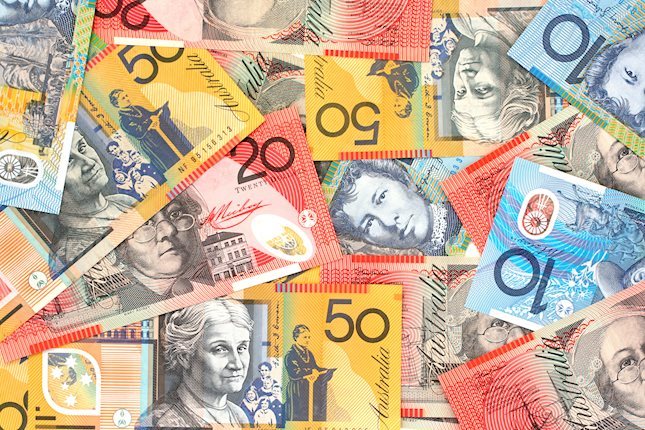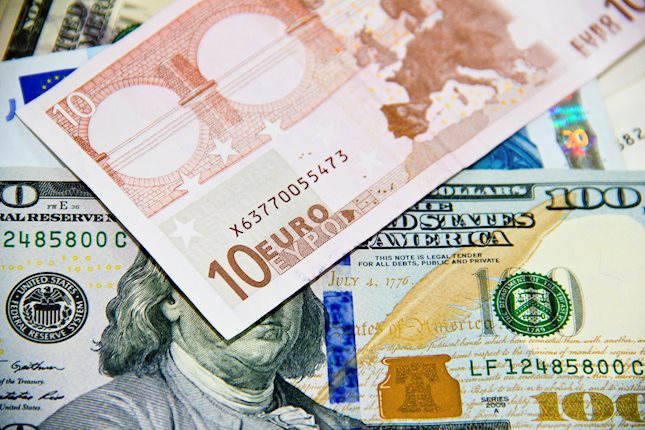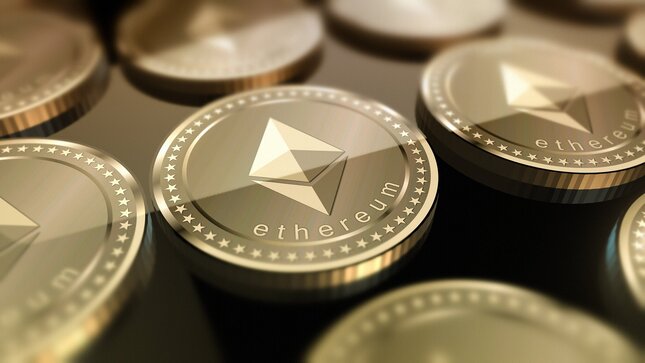Global equities surged even higher this week, putting leading indices at or near all-time highs. The DAX closed out Friday at a fresh all-time high of 12,374. In Japan, the Nikkei briefly topped 20,000 for the first time in 15 years on several big corporate deals and hopes for more stimulus in China. The Hang Seng advanced to seven-year highs on record volumes as mainland investors bought their entire 10.5 billion yuan daily investment quota for Hong Kong stocks for two straight days. The dollar index had its best week in four years, aided by continued euro softness plus a dip in sterling as February UK industrial and construction data disappointed. The DJIA and S&P500 came close to their mid-March all-time highs, and for the week, the DJIA gained 1.6%, the S&P added 1.7% and the Nasdaq rose 2.2%.
The ECB's QE impact continued unabated, as equities surged higher, the euro remained weak and yields fell further. Euro zone sovereign yields fell to fresh record low levels on Thursday (thanks in part to relief Greece made its IMF debt payment after a few weeks of jitters): the French 10-year yield dropped to 0.43% and the German 10-year Bund declined to 0.15%, just a day after Switzerland auctioned 10-year bonds with a negative yield, the first time a government has done so in history.
The Fed minutes out on Wednesday unveiled a fractured FOMC. "Several" officials thought June would be the right time to raise rates, others thought it would be better to wait longer given the impact of the strong dollar and energy prices on inflation, and "a couple" thought the Fed might need to wait until 2016. In speeches, dovish Fed governor Kocherlakota remarked the Fed should defer the first interest rate hike to the second half of 2016, while Lockhart asserted rate hikes were still likely in the June-September period. Dudley said the timing of the first rate hike may be further off now due to recent weak economic data, but a June hike was still in play. More interestingly, Dudley also said that while he was unsure how financial markets would respond to rate hikes, the rate path would be shaped in part by the market's reaction.
The JOLTS and jobless claims data out this week partially dispelled the gloom from last Friday's big miss in the March payrolls. Fed's Dudley noted that he did not believe the March jobs data provided a very good read on the US labor market, given the weather impact. The February JOLTS job openings report - Fed Chair Yellen's favorite gauge of employment demand - was very strong, rising to its best level since 2001. Meanwhile, the four-week average of continuing jobless claims declined to their lowest level since mid-2000. Taken together, analysts say the data is only the latest sign the US is getting close to full employment.
Crude prices were fairly volatile this week as inventories and the Iran situation whipped the major front-month contracts around. WTI gained 8% in the first half of the week, peaking at $54, on a Genscape report that the weekly inventory reports would be unexpectedly low. This did not come to pass, with the API data showing its fourth straight build and the biggest gain in nearly two months at +12.2M bbls and the DoE report disclosing 13th straight build and the largest gain since 2001 at +11M bbls. WTI dropped back to $50, and Brent sank below $56 in tandem after the data. There was more choppiness in the second half of the week after the Iran leadership made some skeptical comments about the framework agreement reached with the western powers last week, and both Brent and WTI closed out the week only slightly higher.
Alcoa's first quarter report unofficially kicked off the March quarter earnings season. The aluminum manufacturer reported solid y/y growth in profits, but revenues came in just short of consensus, pushing shares lower. Drug store chains Rite Aid and Walgreen both widely beat earnings expectations. Rite Aid's initial FY guidance was subpar, sending shares down 6% on the week, while Walgreen was up as much on a solid FY forecast. Samsung Electronics's quarterly operating earnings fell 31% y/y, however the total was well ahead of expectations, raising hopes the firm may be emerging from its profit slump. Global preorders for the Apple Watch sold out fast on Friday, ahead of the start of in-store sales on April 24th.
Bed Bath & Beyond reported Q4 results below expectations and issued conservative guidance for Q1 and 2015, citing tough y/y comparisons as it will not repeat some one-time tax benefits enjoyed in 2014. Shares of Gap Inc. gapped lower on Friday after reporting March retail sales, capping off another lackluster month for US retailers. Gap's total same store sales were a little better than expected thanks to double digit growth at Old Navy, but the Gap Stores brand disappointed with same store sales down 7%. With the Gap sales data included, overall US same store sales were estimated to be up only 0.4% for March.
General Electric has decided it no longer needs a bank. In its most significant strategic move in years, GE is selling off the bulk of GE Capital, divesting itself of risk and financial oversight that comes with being a Systemically Important Financial Institution (SIFI). GE will sell nearly all of its real estate portfolio to Blackstone Group and Wells Fargo for $26.5 billion. It also authorized a share repurchase program of up to $50 billion, funded by returning about $36 billion in cash it currently holds overseas, incurring a $6 billion tax bill on the cash repatriation. Approximately $16 billion of after-tax charges are expected to be recorded in the first quarter of 2015.
The worldwide volume of merger deals announced in 2015 topped $1 trillion this week, and the WSJ reported that if the current pace is sustained, volume for the full year would exceed $3.7 trillion, making it the second-biggest year in history after 2007. In the biggest energy deal in recent memory, Royal Dutch Shell agreed to buy Britain's BG Group in a $70 billion cash and stock. The combined group would have a market capitalization of about $240 billion, twice as big as BP, but still smaller than ExxonMobil. In other deals, FedEx reached a deal to buy Dutch firm TNT Express for $4.8 billion in cash, helping the delivery firm expand operations in Europe. PE firm Permira and the Canada Pension Plan have teamed up to acquire Informatica, an enterprise software company, for about $5.3 billion.
There had been talk for a few weeks that Intel was pursuing programmable logic device maker Altera, but Intel broke off negotiations after Altera was unwilling to take its offer, said to be around $54/share. Altera briefly cratered but shook off the losses on the prospect of it now being in play on the hopes that its upcoming earnings may justify rejecting the Intel offer. Mylan made a preliminary, non-binding proposal to acquire Perrigo for $205/share in cash and stock, valuing it at about $30B. There has been talk since last fall that Teva was interested in buying Mylan, and some reports suggested that Mylan's overture toward Perrigo was a defensive move. Shares of all three generic drug makers were significantly higher after the news.
China indices continued their string of weekly gains as both the Shanghai Composite and the Hang Seng closed at 7-year highs. Shanghai rallied 4.4%, topping the 4,000 level, while Hong Kong had its best week in years, rising nearly 8% to above the 27,000 mark. The strong performance of the Hang Seng was attributed to two consecutive days of investors utilizing the full uptake of the Shanghai-Hong Kong connect. Analysts noted the funds flowing into Hong Kong sought out the dually-listed H-shares offering a discount of over 20%, with the Hang Seng securities having underperformed the recent rally on the mainland index. China inflation data released later in the week was also steady, as CPI remained at 1.4% and the PPI decline stopped expanding for the first time in 8 months. The balance of March data are due next week, with some expectation of continued softness in trade data justifying ongoing PBoC support.
The week was also active for Asia-Pacific central banks, though there were hardly any surprises. The Bank of Japan maintained its annual rate of monetary base expansion at ¥80T, but also lowered its assessment of CPI to 0% from 0-0.5%. BOJ was also faced with a more pronounced dissent by board member Kiuchi who asked for a taper to ¥45T, defeating that call by "majority" which implies that he may have had some support. The Reserve Bank of Australia stood pat at 2.25%, but toned down its rhetoric for lower exchange rate to "further depreciation seems likely", which sent AUD/USD higher by over a cent above $0.77 level. The RBA also retained its focus on risks of inflation in the property market. The Bank of Korea left rates on hold at 1.75%, with one dissenter calling for a rate cut. The BOK also slashed its GDP forecasts by 0.3 percentage points each for 2015 and 2016, to 3.1% and 3.4%, respectively. Late in the week, Korean authorities were admonished by the US Treasury's semi-annual report on currency, which called for interventions to take place only in disorderly market cases.
Information on these pages contains forward-looking statements that involve risks and uncertainties. Markets and instruments profiled on this page are for informational purposes only and should not in any way come across as a recommendation to buy or sell in these assets. You should do your own thorough research before making any investment decisions. FXStreet does not in any way guarantee that this information is free from mistakes, errors, or material misstatements. It also does not guarantee that this information is of a timely nature. Investing in Open Markets involves a great deal of risk, including the loss of all or a portion of your investment, as well as emotional distress. All risks, losses and costs associated with investing, including total loss of principal, are your responsibility. The views and opinions expressed in this article are those of the authors and do not necessarily reflect the official policy or position of FXStreet nor its advertisers. The author will not be held responsible for information that is found at the end of links posted on this page.
If not otherwise explicitly mentioned in the body of the article, at the time of writing, the author has no position in any stock mentioned in this article and no business relationship with any company mentioned. The author has not received compensation for writing this article, other than from FXStreet.
FXStreet and the author do not provide personalized recommendations. The author makes no representations as to the accuracy, completeness, or suitability of this information. FXStreet and the author will not be liable for any errors, omissions or any losses, injuries or damages arising from this information and its display or use. Errors and omissions excepted.
The author and FXStreet are not registered investment advisors and nothing in this article is intended to be investment advice.
Recommended Content
Editors’ Picks

AUD/USD: Next upside target comes at 0.6550
AUD/USD managed well to shrug off the marked advance in the Greenback as well as geopolitical tensions, regaining the area above the 0.6500 hurdle ahead of preliminary PMIs in Australia.

EUR/USD: Further losses now look at 1.0450
Further strength in the US Dollar kept the price action in the risk-associated assets depressed, sending EUR/USD back to the 1.0460 region for the first time since early October 2023 prior to key releases in the real economy.

Gold faces extra upside near term
Gold extends its bullish momentum further above $2,660 on Thursday. XAU/USD rises for the fourth straight day, sponsored by geopolitical risks stemming from the worsening Russia-Ukraine war. Markets await comments from Fed policymakers.

Ethereum Price Forecast: ETH open interest surge to all-time high after recent price rally
Ethereum (ETH) is trading near $3,350, experiencing an 10% increase on Thursday. This price surge is attributed to strong bullish sentiment among derivatives traders, driving its open interest above $20 billion for the first time.

A new horizon: The economic outlook in a new leadership and policy era
The economic aftershocks of the COVID pandemic, which have dominated the economic landscape over the past few years, are steadily dissipating. These pandemic-induced economic effects are set to be largely supplanted by economic policy changes that are on the horizon in the United States.

Best Forex Brokers with Low Spreads
VERIFIED Low spreads are crucial for reducing trading costs. Explore top Forex brokers offering competitive spreads and high leverage. Compare options for EUR/USD, GBP/USD, USD/JPY, and Gold.